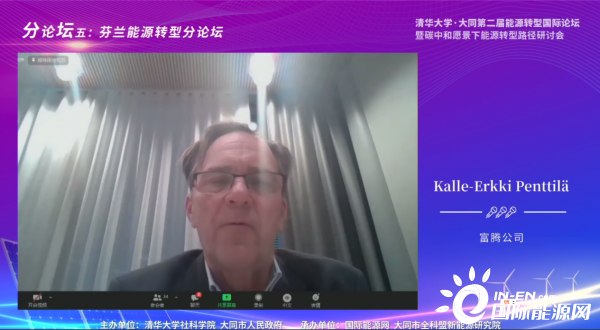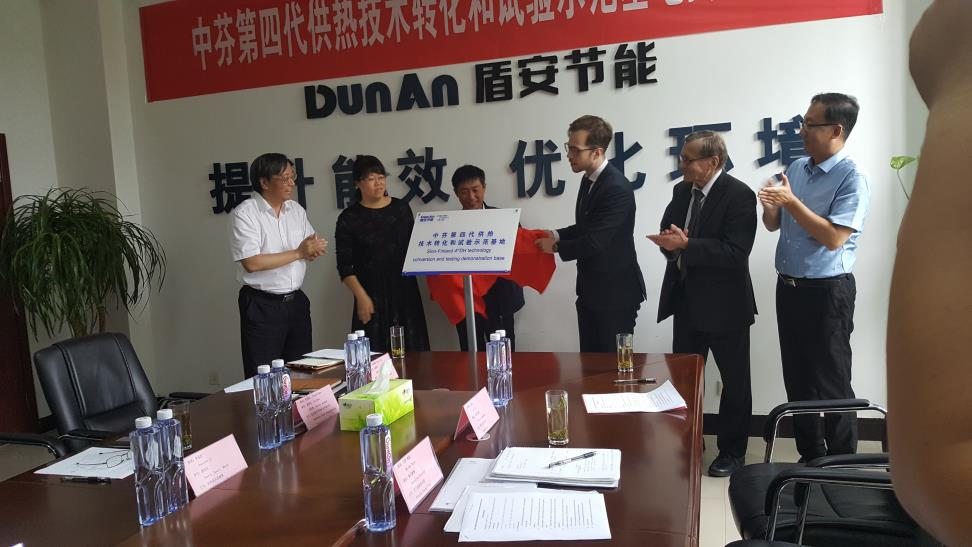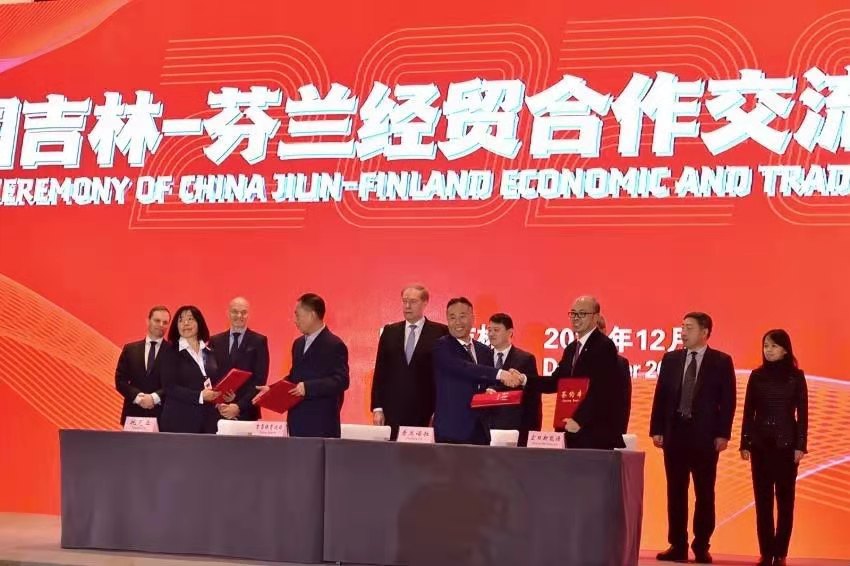Regulations of Hefei City on the Management of Urban Central Heating
Chapter 1 General
Article 1 In order to regulate urban heating services and heating behavior, save energy, reduce air pollution, and promote the sustainable development of central heating, these regulations are formulated in accordance with relevant laws, administrative regulations, and the reality of this city.
Article 2 These Regulations apply to the planning, construction, operation, use and supervision and management of urban central heating within the administrative area of this city.
The term “centralized heating” as mentioned in these Regulations refers to the use of hot water and steam generated by centralized heat sources such as cogeneration, regional boilers, industrial waste heat, geothermal heat, and distributed energy to provide users with paid production and domestic heat or Use cold behavior.
Article 3 Central heating shall follow the principles of scientific planning, overall planning, energy conservation and environmental protection, standardized services, and security.
Article 4 The municipal and county (city) people’s governments shall incorporate the central heating undertaking into the national economic and social development plan, strengthen the construction of central heating infrastructure, and enhance the ability to guarantee central heating.
Article 5 The administrative department of urban and rural construction at the city and county (city) level shall supervise and manage the central heating within its administrative area.
Development and reform, economy and informatization, state-owned assets management, natural resources and planning, housing security and real estate management, ecological environment, emergency management, market supervision and management, finance, public security and other relevant departments shall do a good job of centralized supply within their respective responsibilities. Thermal management related work.
Article 6 Prioritize the development of combined heat and power for central heating, promote advanced, energy-saving, and environmentally friendly heating technologies, and support the development of central heating using renewable energy such as solar energy, geothermal energy, and biomass energy.
Encourage various investment entities to invest in the construction and operation of central heating projects in accordance with relevant laws and regulations.
Chapter II Planning and Construction
Article 7 The city, county (city) urban and rural construction administrative department shall, in conjunction with the relevant departments of natural resources, planning, ecological environment, etc., formulate a special plan for centralized heating according to the overall land and space plan, and report to the people’s government at the same level for approval before organizing implementation.
Article 8 The development and reform departments of the city and county (city) shall, in conjunction with relevant departments, formulate a cogeneration plan based on special plans for central heating and other special plans, and report to the people’s government at the same level for approval before organizing implementation.
Article 9 The plan for cogeneration of heat and power should take heating as its main task, and meet the requirements of improving the environment, saving energy and improving heating quality; gradually develop urban centralized cooling, expand summer cooling load, and improve operating efficiency.
Article 10 The construction, reconstruction and expansion of urban central heating projects shall comply with the special plan for central heating and go through relevant procedures in accordance with regulations.
Article 11 The survey, design, construction, and supervision units of central heating projects shall have the qualifications prescribed by the state and implement relevant technical standards and regulations.
After the completion of the central heating project, the construction unit shall promptly organize the completion acceptance according to law. Those that have not been accepted or failed to pass the acceptance test shall not be put into use.
After the central heating project supporting the building is completed, the construction unit can invite the heating enterprise to participate in the special acceptance of the heating project, and it can be put into use only after passing the acceptance.
Article 12 In areas covered by the central heating pipe network, it is forbidden to build or expand decentralized coal-fired heating boilers; the coal-fired heating boilers that have been built that cannot meet the emission standards shall be demolished within a time limit according to law.
Article 13 Newly built, rebuilt, and expanded urban roads shall simultaneously construct heating pipelines in accordance with the requirements of the special plan for centralized heating. If the conditions for simultaneous construction are not available for the time being, the construction may be advanced or postponed with the approval of the administrative department of urban and rural construction. Where construction is postponed, pipelines shall be pre-built or reserved for underground pipelines in accordance with planning requirements.
Where an underground comprehensive pipe gallery is built on urban roads, the heating pipe network shall be incorporated into the comprehensive pipe gallery.
Article 14 If a new building requires centralized heating, the centralized heating project shall be included in the supporting construction, and the main project shall be designed, constructed and delivered for use at the same time as the main project of the project.
When selecting heat and cold sources for new buildings, the built-in combined heat and power, regional distributed energy systems, etc. should be used first.
Article 15 Where new, rebuilt, or expanded construction projects need to be connected to the heating pipe network, the construction unit shall put forward the heat demand to the heating enterprise, and the heating design plan of the construction unit shall seek the opinions of the heating enterprise.
Article 16 The plan for the renovation of existing pipelines for central heating shall be connected with the plan for renovation of old residential quarters and implemented simultaneously.
Article 17 Encourage construction units to entrust heating companies to build, manage and maintain heating facilities in newly-built buildings.
Chapter III Heating Management
Article 18 This city implements franchising for centralized heating in accordance with the law, and follows the principles of openness, fairness, justice and priority of public interest.
The heating franchise shall not be transferred without authorization.
Article 19 The heat supply and use parties shall sign a heat supply and use contract in accordance with the law, stipulating the rights and obligations of both parties.
Article 20 Heat source enterprises shall comply with the following regulations:
(1) Provide the heating enterprise with hot water, steam and other media that comply with the contract, and provide the heat source parameters in time;
(2) Install necessary measuring instruments and monitoring systems in accordance with regulations, and maintain and repair them regularly;
(3) When a production failure affects the heating supply, promptly organize emergency repairs, take measures to protect the heating pipe network, and immediately notify the heating enterprise;
(4) Other provisions of laws and regulations.
Article 21 Heating enterprises shall comply with the following regulations:
(1) Direct heating to users in accordance with regulations and agreements;
(2) Regularly maintain and repair heating facilities, and establish and save heating facilities files;
(3) Establish a heating pipeline information system, and regularly submit information on heating pipelines that comply with unified technical standards to the administrative department of urban and rural construction;
(4) Dealing with relevant situations and complaints reported by users in a timely manner;
(5) When the heating cannot be supplied normally due to a major equipment accident, immediately organize emergency repairs, report to the municipal administrative department of urban and rural construction, and notify the affected users in time;
(6) Other provisions of laws and regulations.
Article 22 Heating enterprises shall generally supply heat to residential users from December 5th to March 5th of the following year; and provide cooling to residential users from June 5th to September 5th of the current year.
Article 23 Under normal weather conditions, and meet the heating design specifications and the conditions for normal operation of the indoor heating system, the heating enterprise shall ensure the indoor temperature for heating in winter and cooling in summer in accordance with the standards prescribed by the state.
Article 24 If the user’s self-tested room temperature fails to meet the standard, he may submit a temperature measurement request to the heating enterprise or heating facility management unit, and the heating enterprise or heating facility management unit shall promptly send personnel to the site to perform temperature measurement.
If the indoor temperature is not up to the standard due to the heating enterprise or heating facility management unit, the heating facility management unit or heating enterprise shall take timely measures to ensure that the room temperature reaches the prescribed standard and reduce the corresponding fees.
The user arbitrarily changes the structure of the house, dismantles, modifies or shields indoor heating facilities, discharges and uses hot and cold water from heating facilities, or aging or damages indoor heating facilities, etc., resulting in indoor heating and cooling temperatures that are not up to standard or cause The user shall be liable for losses.
Article 25 During the heating period, the heating enterprise shall ensure safe, stable and continuous heating, establish a service hotline, implement 24-hour uninterrupted service, and promptly handle the abnormal problems of heating facilities found during inspections or reported by users .
The heating enterprise shall conduct safety inspections such as water filling, pressure test, and exhaust of the heating system before heating, and notify the user 3 days in advance, and the user shall cooperate.
Heating enterprises shall not postpone, suspend heating supply or end heating supply early; if it is necessary to suspend heating supply, it shall notify users 3 days in advance.
Article 26 A heating enterprise shall establish a safe operation management system, formulate operating procedures for heating operation, facility maintenance and repair, and accident handling to ensure the safe and normal operation of the heating system.
Article 27 Heating enterprises shall implement standardized services, disclose the service content, time, and charging standards to the public, and accept supervision.
Chapter 4 Thermal Management
Article 28 The design and installation of internal heating facilities for users shall comply with relevant national, provincial and municipal standards and regulations. Those that do not meet the relevant standards and regulations shall not be put into use.
Article 29 The property owner of heating facilities shall do a good job in the management and maintenance of heating facilities in accordance with relevant regulations.
The user shall pay the usage fee in full and on time. The heating price for residential users shall be implemented in accordance with the standards determined by the price management department.
Article 30 New users who need centralized heating should install heat metering and regulating devices. Heat supply facilities for existing users shall be gradually transformed in accordance with relevant requirements to realize household control and household metering.
Article 31 Resident users who have installed heat metering and regulating devices in accordance with regulations shall implement a two-part heating price billing method that combines basic heating price and metered heating price.
Resident users who do not currently have the two-part heating price can be charged according to the heating area, and the two-part heating price should be gradually realized.
Article 32 If the user needs to change the name, use address, heat supply load, nature of heat use, or need to stop using heat, he shall go through relevant change procedures with the heating enterprise.
Stopping the use of heat shall not endanger the safe operation of shared heating facilities or affect the normal use of heat by adjacent users.
Chapter V Facility Maintenance and Management
Article 33 The equipment, materials, measuring instruments, etc. used in the construction and maintenance of heating facilities shall meet the quality standards prescribed by the state.
Article 34 The city and county (city) urban and rural construction departments shall, in conjunction with urban and rural planning and other relevant departments, delimit the protection scope of central heating facilities in accordance with relevant national standards and regulations; the protection scope shall be set with a unified safety warning sign. Within the protection scope of central heating facilities, activities that endanger the safety of heating facilities, such as construction, stacking, excavation, soil extraction, and blasting, are prohibited.
Within the protection scope of central heating facilities, if construction is really necessary due to construction, the construction unit shall jointly formulate a heating facility protection plan with the heating enterprise or heat source enterprise and adopt corresponding safety protection measures.
Article 35 It is forbidden to damage or arbitrarily modify, dismantle, or move heating pipe networks, manhole covers, valves, meters and other heating facilities. If it is really necessary to modify, dismantle or move due to the needs of project construction, the construction unit shall solicit the opinions of heating enterprises or heat source enterprises.
Article 36 The user shall not have the following behaviors that affect the normal operation of heating facilities:
(1) Failure to perform management and maintenance duties, causing water or steam leakage in the heating system;
(2) Unauthorized connection or isolation of heating facilities;
(3) Grid-connected with other heat source pipelines, install pipeline pumps, increase or reduce heating pipelines or heating facilities, and expand heating area without authorization;
(4) Changing the use of heat or transferring heat to a third party without authorization;
(5) Installing other devices on heating facilities, stealing steam or hot water;
(6) Heat measuring instruments for damage;
(7) Unauthorized installation, modification, and disassembly of shared heating facilities;
(8) Carrying out activities such as decoration and decoration that endanger the safety of indoor heating facilities;
(9) Other acts that endanger the normal operation of heating facilities and affect the heating effect.
Article 37 The management personnel of heating enterprises or heat source enterprises shall present their certificates when inspecting, maintaining heating facilities, conducting emergency repairs, room temperature testing, checking meters, and charging fees, and users shall cooperate.
Article 38 The administrative department in charge of urban and rural construction as well as heating enterprises and heat source enterprises shall formulate emergency plans for heating supply, organize emergency repair teams suitable for ensuring heating safety, and be equipped with emergency repair equipment, materials, vehicles and communication equipment.
Chapter VI Legal Liability
Article 39 Where there are penal provisions in laws and regulations for acts that violate the provisions of these regulations, those provisions shall be followed; if a crime is constituted, criminal responsibility shall be investigated according to law.
Article 40 In violation of the provisions of Article 21 of these regulations, if the heating enterprise fails to organize emergency repairs or fails to notify the affected users in time when heating cannot be supplied normally due to a major equipment accident, the administrative department of urban and rural construction shall order the correction within a time limit; Failure to make corrections within the time limit shall be fined not less than 5,000 yuan but not more than 20,000 yuan.
Article 41 In violation of the provisions of Article 34 of these regulations, construction, stacking, excavation, soil extraction, blasting and other activities that endanger the safety of heating facilities within the protection scope of heating facilities shall be subject to the administrative department of urban and rural construction A correction is ordered, and if the correction is not made within the time limit, a fine of not less than 5,000 yuan but not more than 20,000 yuan shall be imposed on the unit, and a fine of more than 1,000 yuan but not more than 5,000 yuan shall be imposed on the individual.
Article 42 Anyone who violates the provisions of Article 35 of these regulations by damaging or arbitrarily altering, dismantling or moving heating pipe networks, manhole covers, valves, meters and other heating facilities shall be ordered by the administrative department of urban and rural construction to make corrections and impose a punishment on the unit A fine of not less than 5,000 yuan but not more than 20,000 yuan shall be imposed on individuals with a fine of not less than 1,000 yuan but not more than 5,000 yuan.
Article 43 In violation of the provisions of Article 36 of these regulations, users who have the following behaviors that affect the normal operation of heating facilities shall be ordered by the administrative department of urban and rural construction to make corrections; the unit shall be fined not less than 5,000 yuan but not more than 20,000 yuan. Individuals shall be fined not less than 1,000 yuan but not more than 5,000 yuan:
(1) Connecting or isolating heating facilities without authorization;
(2) Grid-connected with other heat source pipelines, install pipeline pumps, increase or decrease heating pipelines or heating facilities, and expand heating area without authorization;
(3) Changing the use of heat or transferring heat to a third party without authorization;
(4) Installing other devices on heating facilities, stealing steam or hot water;
(5) Heat measuring instruments used for damage;
(6) Unauthorized installation, modification, and disassembly of shared heating facilities.
Article 44 If the relevant departments of heat supply management and their staff neglect their duties, abuse their powers, or engage in malpractices for personal gains, the directly responsible person in charge and other responsible persons shall be punished according to law; if a crime is constituted, criminal responsibility shall be investigated according to law.



